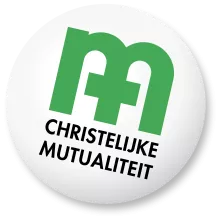Apply for reimbursement for speech therapy
As a speech therapist you will find information about Article 36 of the nomenclature here.

This article determines the conditions for reimbursement for speech therapy treatments.
Application procedure
Speech therapy (bilan and treatment) is only reimbursed if the CM's advising doctor gives his approval. But what exactly do you have to do for this? Follow the step-by-step plan.
The doctor gives the patient a prescription for the initial assessment (testing). The doctor in question must be a general practitioner or a specialist doctor with an active Riziv number.
The speech therapist carries out the assessment.
A qualified medical specialist writes a prescription for the treatment.
The speech therapist or patient provides CM with the necessary documents. There are two possibilities:
- Either:
- reimbursement application form, signed by the patient or his legal representative;
- prescription of the initial balance sheet;
- copy of the speech therapy bill;
- prescription for speech therapy treatment.
- Either:
- application form for reimbursement with the standard template 'bilan for speech therapy' : this standard template contains the application, the bill and the prescription for the speech therapy treatment; the document must be signed by the speech therapist, the prescribing doctor and the patient or his legal representative (see explanation on the Riziv website);
- provision of the initial balance sheet.
The speech therapist starts the treatment.
Guidelines for a balance sheet
A bill is always typed and contains the following elements :
- identification of the speech therapist and the patient;
- description of the balance sheet (nature, date and place of preparation);
- identification of the disorder for which reimbursement is requested;
- description of the problem;
- research data;
- therapy proposal;
- signature of the speech therapist.
An assessment report in the context of learning disabilities (B3) must additionally contain the following information:
- anamnesis (current year of schooling of the child with its didactic age, school career and language situation);
- evaluation specific to the disorder (dyslexia, dysorthography, dyscalculia).
Refund exclusions
There is no reimbursement by the health insurance for speech therapy treatment if the beneficiary :
- receives special education (this restriction only applies to treatments provided for under §2, b), 2°; §2, b), 3° and §2, f);
- is treated and/or housed in an institution recognized and subsidized by the communities/regions, where the function of speech therapist is included in the recognition standards;
- for nursing is included in a service recognized under the code letter G, T, A, Sp or K;
- is staying in a PVT, ROB or RVT;
- is rehabilitated in an institution that has concluded an agreement with the Riziv or with the federated entities that covers treatment by a speech therapist (this exclusion does not apply to beneficiaries with disorders described in §2, b), 6°, 6.3 and §2, d).
A refund is also excluded for disorders due to :
- psychiatric conditions or emotional states:
- relationship problems;
- neglected or inadequate school attendance (e.g. due to illness);
- learning a language other than the mother tongue or a multilingual upbringing;
- single disorders such as sigmatism, rhotacism, lambdacism, kappacism, cluttering;
- voice disorders such as acute functional aphonia or dysphonia, phonasthenia, voice alternation disorders;
- disorders provided for under §2, b), 2° and §2, f) that follow speech therapy treatment of dyslexia and/or dysorthography and/or dyscalculia.
Parental guidance
Through parent guidance, people raising the child are taught practical strategies to efficiently support the child's speech therapy treatment.
No separate application to the advising physician is required for this parental guidance.
Parental guidance can be certified for the following disorders:
- B2: Disorders in receptive and/or expressive language development
- B3: Dyslexia and/or dysorthography and/or dyscalculia
- B6.4: Stuttering
- C2: Dysfunction of the larynx and/or vocal folds
- D: Hearing disorders
- F: Dysphasia
These benefits may be charged a maximum of ten times per disorder per child, spread over the duration of the treatment.
The maximum number of treatment sessions for the disorder must be reduced by the number of parent guidance sessions charged. There are individual and collective sessions:
- an individual parent guidance session is equated with two individual treatment sessions of thirty minutes;
- a collective parent guidance session is equated with an individual treatment session of thirty minutes.
Relapse
If the maximum number of reimbursable sessions has not been used during the first period, it is possible to give a new agreement in the event of a recurrence provided the conditions are met.
This only applies to the following disorders:
- B1: Aphasia
- B2: Disorders in receptive and/or expressive language development
- B3: Dyslexia and/or dysorthography and/or dyscalculiei
- B6.4: Stuttering
- C2: Dysfunction of the larynx and/or vocal folds
- E: Dysphagia
The complete list can be found here.
What are the conditions?
- The patient relapses at least six months and at most two years after the end of the period for which there was an agreement of two or four years.
- The assessment in the context of recurrence must be prescribed before treatment is resumed.
- The assessment provides an indication to resume treatment and a proposed therapeutic plan .
- The treatment of the recurrence must be prescribed after the assessment has been drawn up .
- The complete file is transferred to the advising doctor.
- The consulting physician agrees for one year for the total number of remaining sessions of the container that have not been reimbursed during the entire treatment, with a maximum that varies depending on the disorder (container relapse).
| Disorder | Maximum number of reimbursable individual sessions of thirty minutes | ||
| For the entire duration of the treatment (total container, including any relapse) | For the treatment of the recurrence for a maximum of one year (container recurrence) | ||
| Aphasia | B1 | 288 | 86 |
| Disorders in receptive and/or expressive language development | B2 | 190 | 57 |
| Dyslexia and/or dysorthography and/or dyscalculia | B3 | 140 | 42 |
| Stuttering | B6.4 | 128 | 38 |
| Dysfunction of the larynx and/or vocal folds | C2 | 80 | 24 |
| Dysphagia | E | 65 | 20 |
Useful links to the Riziv site
- Page 'Speech therapists'
- Application form for reimbursement of the costs for speech therapy provision
- Reimbursement application form with the standard template 'bilan voor speechtherapie'
- Compendium (interpretation of the nomenclature, has no legal value)
- Limitative list of tests
- Agreement 2022-2023 between speech therapists and insurance institutions
- Forms Riziv

